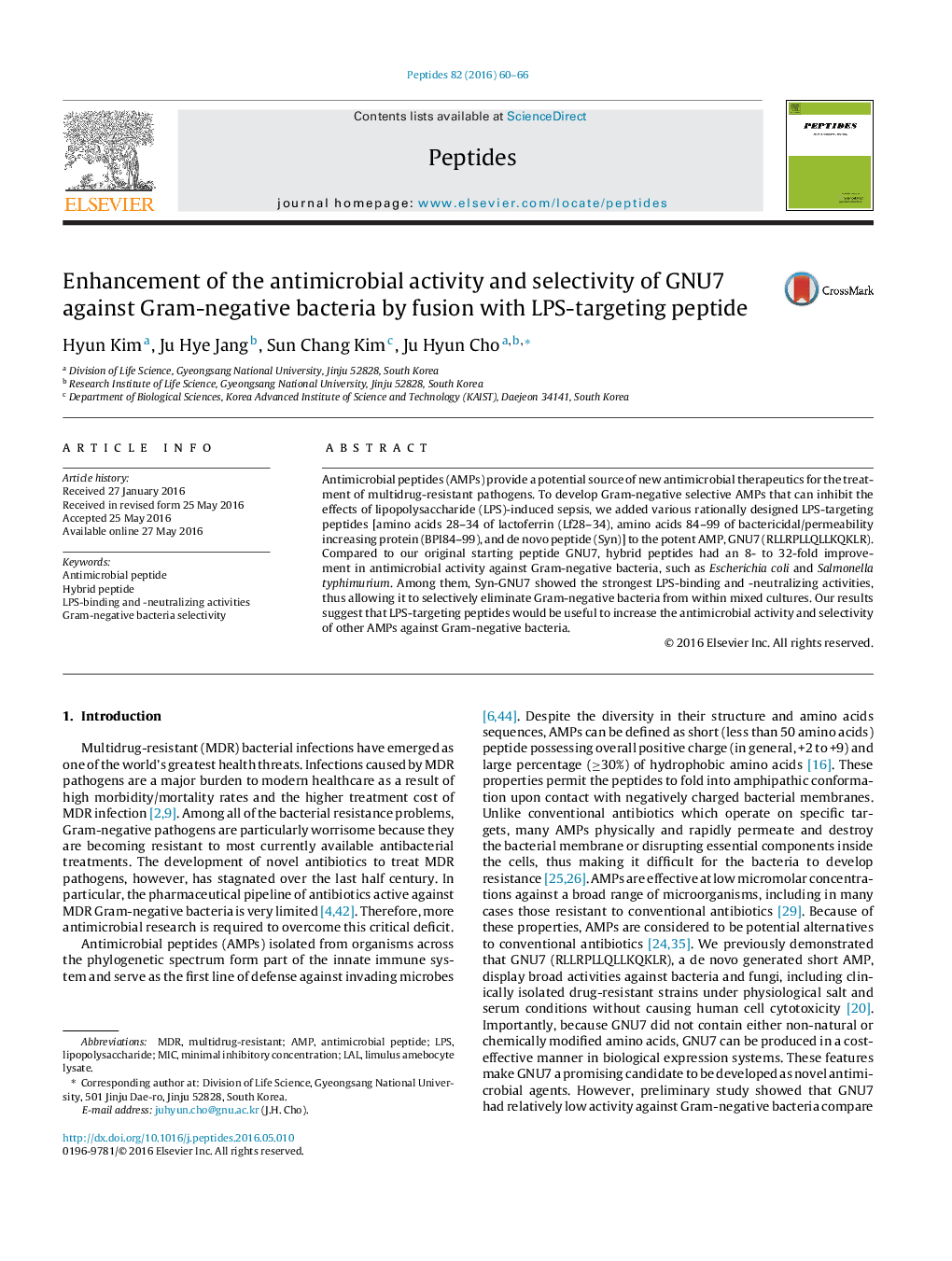| Article ID | Journal | Published Year | Pages | File Type |
|---|---|---|---|---|
| 2005775 | Peptides | 2016 | 7 Pages |
•We designed hybrid peptides via addition of various LPS-binding peptides to GNU7 (RLLRPLLQLLKQKLR).•Hybrid peptides displayed higher anti-Gram-negative activity than GNU7.•Among them, Syn-GNU7 shows the strongest LPS-binding and -neutralizing activities.•Syn-GNU7 selectively eliminates Gram-negative bacteria from within mixed cultures.
Antimicrobial peptides (AMPs) provide a potential source of new antimicrobial therapeutics for the treatment of multidrug-resistant pathogens. To develop Gram-negative selective AMPs that can inhibit the effects of lipopolysaccharide (LPS)-induced sepsis, we added various rationally designed LPS-targeting peptides [amino acids 28–34 of lactoferrin (Lf28–34), amino acids 84–99 of bactericidal/permeability increasing protein (BPI84–99), and de novo peptide (Syn)] to the potent AMP, GNU7 (RLLRPLLQLLKQKLR). Compared to our original starting peptide GNU7, hybrid peptides had an 8- to 32-fold improvement in antimicrobial activity against Gram-negative bacteria, such as Escherichia coli and Salmonella typhimurium. Among them, Syn-GNU7 showed the strongest LPS-binding and -neutralizing activities, thus allowing it to selectively eliminate Gram-negative bacteria from within mixed cultures. Our results suggest that LPS-targeting peptides would be useful to increase the antimicrobial activity and selectivity of other AMPs against Gram-negative bacteria.
